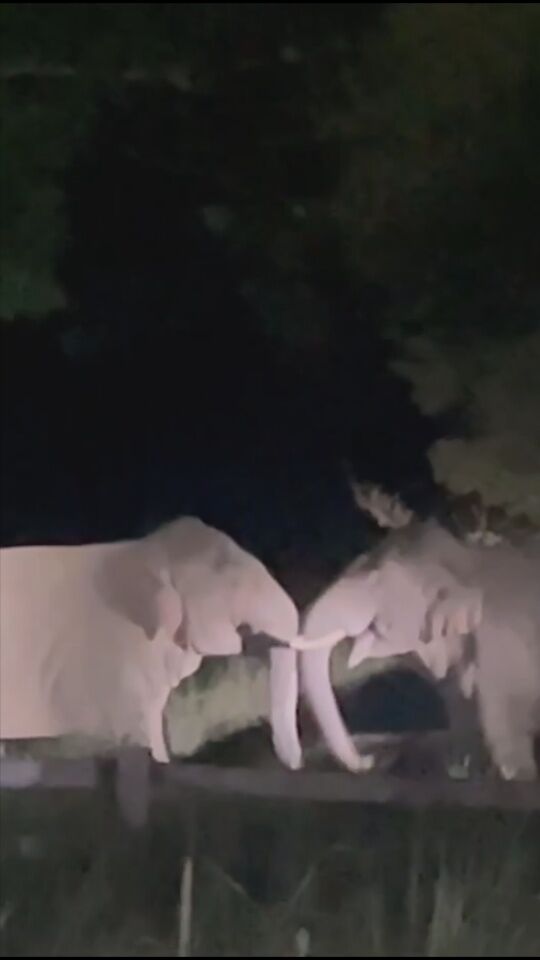Elephant tussle in Khao Yai ends with broken tusk

A dramatic clash for dominance between two male elephants yesterday left one with a broken tusk in Khao Yai National Park, Nakhon Ratchasima province.
The incident occurred after Plai Khrut, the young elephant who previously made headlines for raiding a statue at Wat Mu Si and consuming all the sugar cane grown by the temple for religious ceremonies, challenged his companion Plai Yodchay.
Members of the Khao Yai Love Club managed to capture the intense fight, which resonated through the forest with the sound of clashing tusks. The battle took place along Thanarat Road, opposite the Krung Thai Bank Training Centre, leading up to Khao Yai National Park.
In the end, Plai Khrut emerged victorious, his adversary’s tusk broken in the fierce encounter. Onlookers believe the fight was likely a power struggle for leadership or to win the favour of a female, a natural part of wildlife behaviour.
Following the confrontation, both elephants retreated into the depths of Khao Yai National Park to rejoin their herd, which frequently roams the boundary areas between the village of Mu Si and agricultural lands. The elephants of this region are known to venture out of the national park boundaries in search of food, often entering farmlands, reported Sanook.
The park, located in the Mu Si subdistrict of Pak Chong district, is a biodiversity hotspot and a popular tourist destination.
In related news, concerns about the welfare of domesticated elephants have surged. These gentle giants, pivotal to Thailand’s economy since ancient times, now face a crisis that threatens their very existence.
During the Rattanakosin era, domesticated elephants bolstered Thailand’s economy by logging. However, a tragic turn in 1988, when floods and landslides claimed lives, forced a shift. Former Agriculture Minister Sanan Kachornprasart’s swift action suspended logging, leaving elephants and their mahouts jobless.
In other news, a wild elephant known as See Do Nok has been safely relocated after posing a danger to locals in the Kabin Buri district of Prachinburi province.
Latest Thailand News
Follow The Thaiger on Google News:


























